Dogs are often curious creatures, known to gobble up anything within their reach. As caring pet owners, it’s essential to be vigilant about what they consume. Cod, a popular fish among humans, raises the question: can our canine companions enjoy it too? Let’s dive into this piscine dilemma and uncover the truth about whether dogs can safely indulge in cod.
Contents Overview
What is Cod?
Cod is a type of fish found in both the Atlantic and Pacific oceans, renowned for its mild flavor and flaky texture. It’s a staple in many cuisines worldwide, cherished for its versatility and nutritional value.
Nutritional Value of Cod
Cod is a highly nutritious fish, packed with essential nutrients beneficial for overall health. It’s rich in high-quality protein, which supports muscle development and strength. Additionally, cod is a good source of omega-3 fatty acids, vital for heart health and reducing inflammation. It also contains important vitamins such as B12 and D, along with minerals like phosphorus, selenium, and potassium, which contribute to various bodily functions. Overall, incorporating cod into your diet can provide a significant nutritional boost.
Can Dogs Eat Cod Safely?
Yes, dogs can safely eat cod, but there are important considerations to keep in mind. Cooked cod without bones is safe for dogs to consume in moderation. However, raw cod should be avoided due to the risk of harmful bacteria or parasites. Additionally, it’s crucial to refrain from seasoning the cod with ingredients like garlic or onions, which can be toxic to dogs. Feeding cod in appropriate amounts as part of a balanced diet can provide dogs with essential nutrients like protein, omega-3 fatty acids, and vitamins, contributing to their overall health and well-being.
Potential Benefits of Cod to Dogs
Incorporating cod into your dog’s diet can offer several potential benefits:
- Improved Joint Health: The omega-3 fatty acids in cod possess anti-inflammatory properties that may help alleviate symptoms of arthritis and improve joint mobility in dogs, especially in older or arthritic pets.
- Healthy Skin and Coat: The omega-3 fatty acids and vitamin D in cod can contribute to a shiny coat and healthy skin, reducing issues like dryness, itching, and flakiness.
- Enhanced Cognitive Function: The omega-3 fatty acids DHA and EPA are crucial for brain development and function. Including cod in your dog’s diet may support cognitive health and aid in maintaining mental sharpness, particularly in senior dogs.
- Supports Heart Health: Omega-3 fatty acids are beneficial for cardiovascular health, helping to maintain normal heart rhythm, reduce the risk of blood clots, and lower blood pressure, thus supporting overall heart function in dogs.
- Boosted Immune System: The vitamins and minerals in cod, along with its protein content, contribute to a strong immune system, helping your dog ward off infections and illnesses.
Potential Risks and Precautions of Feeding Cod to Dogs
While cod can offer numerous health benefits to dogs, it’s essential to be aware of potential risks and take precautions when incorporating it into their diet. Understanding these risks can help pet owners make informed decisions about their furry companions’ nutrition. Let’s explore the potential risks and precautions associated with feeding cod to dogs.
Potential Risks of Feeding Cod to Dogs:
- Mercury Contamination: Like many fish, cod may contain trace amounts of mercury, which can accumulate over time and pose health risks, particularly in large or frequent servings. High levels of mercury can lead to mercury poisoning, causing symptoms such as tremors, weakness, and neurological issues in dogs.
- Allergic Reactions: Some dogs may be allergic or sensitive to fish proteins, including those found in cod. Allergic reactions can manifest as itching, skin irritation, digestive upset, and in severe cases, anaphylaxis. It’s essential to monitor your dog closely for any signs of allergy when introducing cod into their diet.
- Bones: Cod may contain small bones that can pose a choking hazard or cause gastrointestinal obstructions if ingested by dogs. While the bones in cod are generally softer than those in other fish species, it’s crucial to remove them thoroughly before feeding cod to your dog.
- Parasites and Bacteria: Raw or improperly cooked cod can harbor parasites such as roundworms, tapeworms, and bacteria like Salmonella and Listeria, which can cause foodborne illnesses in dogs. Cooking cod thoroughly can help reduce the risk of contamination and ensure the safety of your pet.
Precautions When Feeding Cod to Dogs:
To minimize potential risks associated with feeding cod to dogs, consider the following precautions:
- Cooking: Always cook cod thoroughly before feeding it to your dog to eliminate any parasites or bacteria. Avoid feeding raw or undercooked cod to prevent foodborne illnesses.
- Bone Removal: Remove all bones from cooked cod to prevent choking hazards and gastrointestinal issues. Even small bones can cause harm if ingested by dogs.
- Moderation: Introduce cod into your dog’s diet gradually and in moderation, especially if it’s their first time-consuming fish. Monitor your dog for any adverse reactions or digestive upset, and adjust their diet accordingly.
- Quality: Choose high-quality, fresh cod sourced from reputable suppliers to ensure its safety and nutritional value. Avoid feeding your dog spoiled or fish of questionable quality.
- Variety: While cod can be a nutritious addition to your dog’s diet, it should not constitute their entire food intake. Ensure a balanced diet by incorporating a variety of protein sources, fruits, vegetables, and grains tailored to your dog’s nutritional needs.
Safe Ways to Feed Cod to Dogs
Let’s explore safe ways to feed cod to dogs to promote their health and well-being.
- Cooking Methods:
Cooking cod thoroughly is essential to eliminate any potential pathogens and ensure its safety for consumption by dogs. Consider the following safe cooking methods:
- Baking: Bake cod in the oven at a moderate temperature until it is fully cooked through. This method retains moisture while ensuring the fish is cooked evenly.
- Grilling: Grilling cod can impart a delicious flavor while cooking it thoroughly. Use a clean grill and cook the fish until it flakes easily with a fork.
- Boiling: Boiling cod in water or low-sodium broth is another safe cooking method. This gentle cooking process helps retain moisture and can be particularly beneficial for dogs with dental issues or sensitive stomachs.
- Seasoning and Preparation:
When preparing cod for dogs, it’s essential to keep the seasoning simple and safe. Consider the following guidelines:
- Unseasoned: Avoid using spices, herbs, or seasonings that may be harmful to dogs, such as garlic, onion, or excessive salt. Serve plain, unseasoned cod to your furry companion to prevent digestive upset or toxicity.
- Minimal Ingredients: Keep the preparation simple and avoid adding unnecessary ingredients that may detract from the nutritional benefits of cod. Opt for minimal seasoning to maintain the integrity of the fish.
- Bone Removal:
Removing bones from cod is crucial to prevent choking hazards and gastrointestinal issues in dogs. Follow these steps to ensure bone removal:
- Inspect Thoroughly: Before cooking, carefully inspect the cod for any remaining bones. Use your fingers or a pair of tweezers to remove any small bones that may be present.
- Check Again: After cooking, double-check the cod to ensure all bones have been removed. Even small bones can pose a risk to dogs if ingested accidentally.
- Serving Size and Frequency:
When feeding cod to dogs, it’s essential to consider appropriate serving sizes and frequency:
- Moderation: Serve cod to your dog in moderation, especially if it’s their first time-consuming fish. Start with small portions and gradually increase as tolerated, monitoring for any adverse reactions.
- Frequency: Incorporate cod into your dog’s diet as part of a balanced meal plan. Avoid overfeeding or relying solely on cod as the primary protein source.
When to Avoid Cod to Dog
- Allergies: If your dog has known allergies to fish or seafood, it’s best to avoid feeding them cod.
- Mercury Concerns: Consider avoiding cod if you’re concerned about mercury levels, especially in pregnant or nursing dogs.
- Digestive Issues: If your dog experiences digestive upset or intolerance to fish, it’s wise to skip feeding them cod.
- Bones: Avoid feeding cod to dogs if you’re unable to thoroughly remove all bones, as they can pose a choking hazard.
- Preparation: If you’re unable to cook cod properly or ensure its freshness, it’s safer to avoid feeding it to your dog.
Safe and Suitable Alternatives of Cod for Dogs
If cod isn’t the right fit for your dog, there are plenty of safe and suitable alternatives to consider. Whitefish such as haddock or flounder offer similar nutritional benefits without the potential risks associated with cod. Additionally, salmon and trout are excellent sources of omega-3 fatty acids and protein, promoting healthy skin, coat, and overall well-being. For dogs with allergies or sensitivities, lean proteins like chicken, turkey, or lean beef can provide essential nutrients without the risk of adverse reactions. Ultimately, choosing the right alternative depends on your dog’s preferences, dietary needs, and any specific health considerations.
Bottom Line
In conclusion, dogs can indeed enjoy the occasional serving of cooked, boneless cod as part of a balanced diet. Packed with protein, omega-3 fatty acids, vitamins, and minerals, cod offers various health benefits for our canine companions. However, it’s crucial to exercise caution, feed it in moderation, and monitor your dog for any adverse reactions. As always, consulting with your veterinarian before introducing new foods into your dog’s diet is recommended to ensure their health and well-being. With careful consideration and moderation, your dog can savor the flavors and reap the rewards of this nutritious fish.


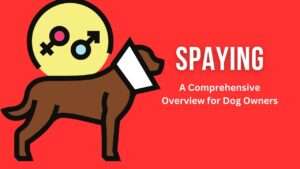

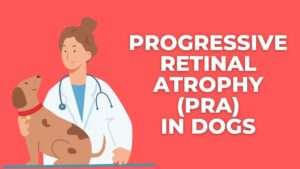





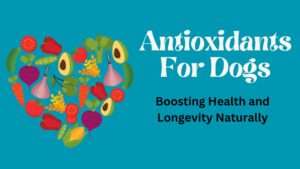



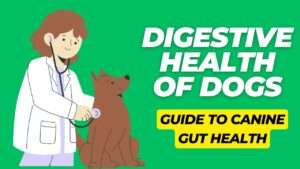




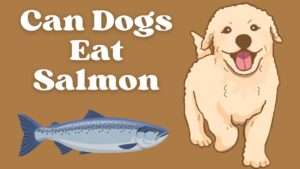
















+ There are no comments
Add yours